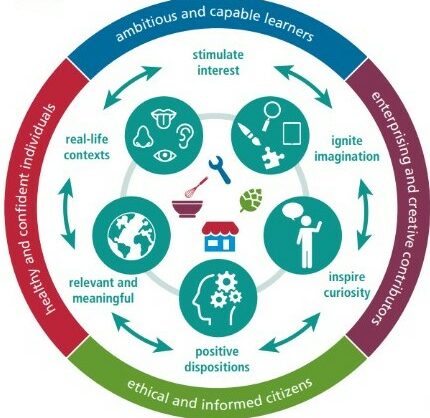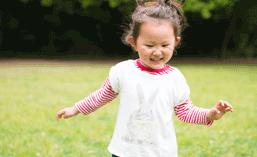Effective, child-centred pedagogy, which is responsive, dynamic and embedded in strong relationships, is essential to realising the ambition of the Curriculum for Wales.
Understanding what effective pedagogy is will support your team to confidently embed the new curriculum and achieve high-quality learning that supports children’s progress and development.
The word ‘pedagogy’ has been used for many years when referring to children’s learning, but what does it mean?
Pedagogy is simply the method and practice of teaching – the way practitioners deliver the content of the curriculum to the children in their setting.
Pedagogy is the….
- WHY we do what we do
- HOW we do what we do
..to support the….
- WHAT skill, disposition or need is being met or developed.
Supporting resources:
- Pedagogy– online NDNA course.
Although the principles of effective pedagogy are embedded throughout this curriculum, it is particularly important to ensure that the learning environment within your setting provides consistent opportunities for the following:
- Play and play-based learning
- Being outdoors
- Authentic and purposeful learning
- Physical literacy.

Play and play-based learning
Play and play-based learning encourages children to:
- create friendships and enjoy positive relationships
- communicate with others and express themselves
- develop independence and take responsibility
- be lively and energetic, quiet and still
- be problem solvers and great thinkers
- explore and make sense of the world.
Supporting resources:
Download factsheet – Sustained shared thinking –Free NDNA Cymru factsheet
Download factsheet – Introduction to Loose Parts Play – Free NDNA Cymru factsheet
Play and play based learning module on Hwb.

The outdoor environment:
- Provides access to natural resources
- Provides opportunities to make the most of seasonal changes
- Allows first-hand, authentic learning
- Allows children to connect to nature
- Is accessed regularly (daily) by all children.
Supporting resources:
- Free factsheets:
- Developing Quality Outdoor Provision
- Top tips for developing your use of the outdoors
- Information for parents on outdoor risky play
- Q&A on the outdoors
- Video presentation from Big Ben’s Adventure Club for NDNA Cymru
- Risky Play – NDNA Cymru online course
- Developing quality outdoor provision – NDNA LVC course
- Outdoor Learning – module on Hwb.

Authentic and purposeful learning
Authentic and purposeful learning enables children to:
- Investigate, explore, create and be active participants in their learning
- Take the lead in asking questions, identifying problems, taking risks and finding solutions
- Understand the purpose of their learning
- Develop an understanding of the world around them
- Engage all their senses to create understanding.
Supporting resources:
- Download factsheet – Authentic Learning – Free NDNA Cymru factsheet
- Authentic and purposeful learning module on Hwb.

Physical Literacy
Physical literacy* is the motivation, confidence, physical competence, knowledge and understanding that provides children with the foundation for lifelong participation in physical activity.
Enabling them to be physically literate supports children’s physical, cognitive, social and emotional development and creates healthy, active movers. To be physically literate, you need to develop a collection of ‘movement vocabulary’ built from birth and continuing throughout life.
(*Literacy- competence or proficiency in a specified area)
Practitioners can support children’s desire for movement by creating active opportunities, space and time to;
- Be physically active outdoors and indoors
- Build children’s confidence in their own physicality
- Experience a range of play types e.g. rough & tumble, exploratory, locomotor and risky play
- Practice and consolidate their physical movement
- Use music, songs, nursery rhymes and stories to encourage physical movement
- Stimulate exploration through objects, images and provision being placed in different spaces (at eye level, on the floor, above, to the side, walls, windows, fences)
- Identify areas across the environment that could be made more active e.g. removing chairs from the playdough or malleable materials table
- Model positive attitudes and motivation towards physical movement.
Supporting resources:
- Developing physical literacy– Free NDNA factsheet
- Movement and physical development– Free NDNA Factsheet
- Physical Activity in the Early Years– NDNA online course.
Reflective practice
When considering the pedagogy you use, you often naturally reflect on your own practice. Reflective practice is integral to individual professional development as well as vital in delivering high-quality provision to children. Research shows that those who reflect on their learning, are more likely to embed what they have learnt and consequently improve their performance.
Reflective practice can also help practitioners to:
- be more creative and find solutions in a range of scenarios
- identify strengths and highlight areas for development as well as pinpointing individual professional learning needs.
Many of the support resources around pedagogy encourage practitioners to reflect on their practice and provision by providing scenarios, case studies and research findings to consider what they do well, what difference does this make, and what might be developed further. As reflective practice is a cyclical process, practitioners should act on developments, and also reflect on how effective these have been in improving the quality of practice. Practitioners should consider how this process could be recorded or documented.

